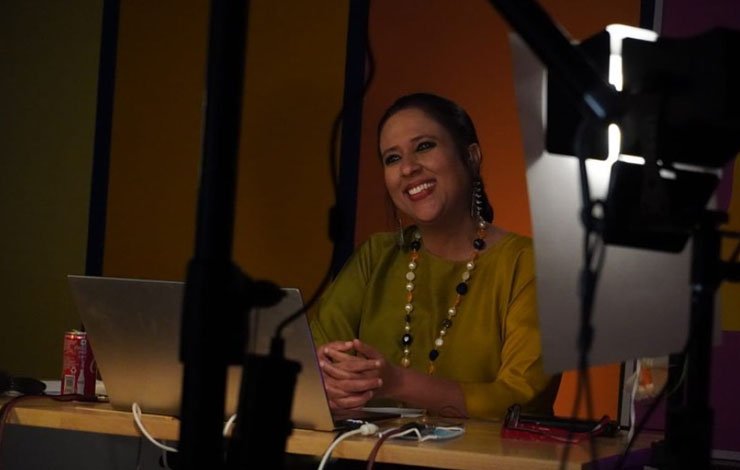Barkha Dutt’s Odyssey in ‘Democratic’ India
She penned down difficulties and impediments for an independent journalist has to go through in the line of duty in India

In a recent op-ed published in Washington Post, an Indian television journalist, Barkha Dutt shared how extraordinarily difficult it is to be an independent journalist in today’s ‘Democratic’ India.
Dutt explained that India practices two kinds of democracies. A thriving democracy, when it comes to elections and the peaceful transition of power.
But a distinctly diminishing democracy, when it comes to institutional freedoms.
Dutt is an award-winning TV journalist and the owner of the YouTube news channel MoJo, with more than two decades of reporting experience.
In normal times, a journalist should be the storyteller and not the story.
Instead of a compassionate compact between the citizen and the state, draconian high-handedness has become the norm rather than the exception.
Patriotism is policed, the police officials are politicized, dissent is penalized, the media is compromised and satire is criminalized. In this divided environment, paranoia thrives.
Indian democracy has seen challenges before. The emergency declaration by the Former Prime Minister of India, Indira Gandhi, in the 1970s, remains the most notorious example.
The irony is that many leaders of the current ruling Bharatiya Janata Party (BJP) went to jail in those years in protest due to dissonance between electoral success and institutional accountability.
Dutt reviewed an incident of the arrest of a 22-year-old climate activist Disha Ravi, who has been accused of sedition for collaborating on an online “toolkit” to amplify the farmers’ protests in India.

Although, the authorities alleged that Ravi participated in an international conspiracy, along with teen activist, Greta Thunberg and a secessionist Sikh group based in Canada.
After spending 10 days in custody before being granted bail, Ravi’s organization has denied any connection with the group, citing a ‘lack of research’ in including a certain link in the toolkit.
This hateful video called for violence against her and other journalists because they were listed in the toolkit as reporters covering the protests, which has been taken down by some platforms, but by that point, half a million people had already viewed it.
However, the controversy offered the perfect opportunity for the government to deflect from its poor handling of the protests.
Until the court called the toolkit ‘innocuous’, it was made to sound like an arsenal deployed to blow up the Indian political establishment.
Later, the calls for our execution did not stop at least four members of the BJP and its ideological affiliates from endorsing the video and complaining about censorship when it was removed by YouTube.
Moreover, the police in the state of Uttar Pradesh filed a criminal case against me and my team for a report on Mojo Story, a digital platform that I edit and run, about the murder of two Dalit girls.
The two sections of the law that were cited could mean up to three years in prison. And because the Information and Technology Act (ITA) has been invoked against the Twitter handle of journalists.
The lawyers warned that it could allow police to seize their phones and computers.
Read Also
Hijabi Filmmaker Breaking Stereotypes in Hollywood
Indeed, journalists who are still willing to be independent are increasingly vulnerable in India.
One study found that in 2020, 67 reporters were questioned, detained, or arrested for doing their jobs, as India slipped two places on the World Press Freedom Index.
Despite all the challenges including threats to physical safety, misogynistic abuse and trolling, and curtailed access to government and information, Dutt remains privileged to get support from colleagues, as well as international media groups.



